PREVIEW: Fractured Online Takes Final Fantasy XIV’s Blue Mage System To A Whole New Level
It’s also offers players the ability to have their cake and eat it too when it comes to PvE in a sandbox world.
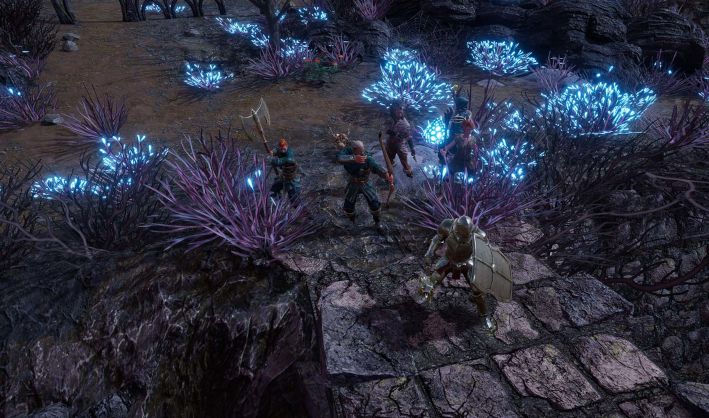
Oftentimes, when developers announce an “all-new” take on a well-known game format, that take might not be nearly as wild or different as players hope. Rather than offering something that’s actually different, the game in question can often be like every other game in the genre with one or two kinda new things inserted. That doesn’t seem to be the case with Fractured Online, the upcoming isometric sandbox game being developed by Dynamight Studios and published by gamigo.
As a lot of online players know, gamigo isn’t typically recognized as a publisher that takes on completely new projects – or even backs the development of an up-and-coming project. But that’s exactly what they’re doing with Fractured Online. It’s apparent the publisher feels there’s something special here.
Recently, gamigo and Dynamight offered us a look at the game with a walkthrough, highlighting several things that make the game stand out in an environment filled with open-world sandbox games. We sat down with gamigo Executive Producer Westly Connor, Associate Producer Ashton Dawson, and Dynamight Studios’ Co-Founder and CEO Jacopo Pietro Gallelli to take a look at the game. To demonstrate the difference between Fractured Online and other sandbox MMOs, Gallelli and Connor explained what they referred to as the game’s three pillars of content. This consists of knowledge-based progression, World vs World combat, and the very detailed city building.
Being a sandbox game, Fractured Online features most of the things players would expect from the genre. Everything players need can be created by players – through farming, crafting, or combat. There’s a lot to obtain, too, as the game features over a million different types of resources – although, players may have a hard time getting their hands on something based on their location in the game, the game is broken into three different worlds, all with their own collection of resources, after all. For example, there are about 400,000 resource modes in the game’s first map alone.
Before we delve fully into the three pillars of gameplay, it’s worth talking about the overall structure of the game first. During the walkthrough, we visited the one continent (and therefore world) that was available at the time. This world is inhabited by one of the three main races in the game, the humans. When the game launches it will feature two other worlds, each inhabited by a different race – specifically demons and beastmen. Each world features its own resources, laws, and rules for combat.
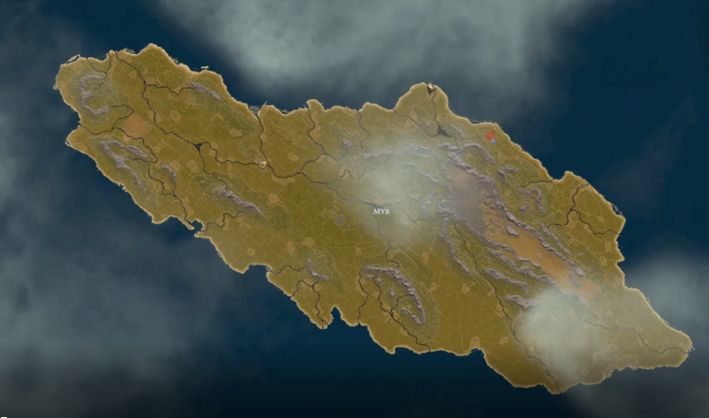
That’s not to say that picking a race to play restricts a player to the world of their race – although it’s definitely an option to stay. There is, in fact, the option to travel to the other worlds to collect resources and engage in activities that may not be available on their own world.
The first available world, as mentioned, is the world of the humans. This world falls into the middle ground where combat is involved. This means that players can engage in criminal actions if they choose to, but at the risk of being punished. “Good players” – meaning alignment, not skill – can take on the role of bounty hunters and put those who commit these acts, like player killers, in jail. The system also allows for jailed players to eventually leave jail, either by simply waiting or by paying bail. The bail money is split between the jail, the bounty hunter, and the game’s system.
The other two worlds, that of the beastmen and that of the demons fall further out on the spectrum. The beastmen world has a “good” alignment, meaning players can’t attack each other and criminal actions do not exist. The Demon world is a free-for-all with open PvP and no punishment. It’s a bit of an “at your own risk” situation. Players can travel between these worlds, but they need to recognize that the rules of the others are different than their own.
With that out of the way, we’ll go back to the three pillars of the game. The first, the knowledge-based progression system, may sound pretty familiar to players of Final Fantasy XIV – particularly those who have spent time leveling the “weird” job – the Blue Mage. As with the popular MMO’s class, players of Fractured Online progress their characters by collecting abilities from monsters. This requires gaining “knowledge” of the monsters by killing a certain amount.
Player progress towards obtaining a specific ability is tracked in a “Book of Knowledge”. This also tracks things like the discovery of resources, unique items dropped by bosses and crafting recipes. To track monsters and the abilities they will obtain from them, players will need to use the “bestiary” section of the book. This will tell players what abilities are obtained from what monsters, and how many of the monsters in question must be slain. Generally, this is 14 to 15 on average, but some creatures, like bosses, can require a bit more. Once a player slays enough monsters, the skills at the bottom of their page will be made available to use.
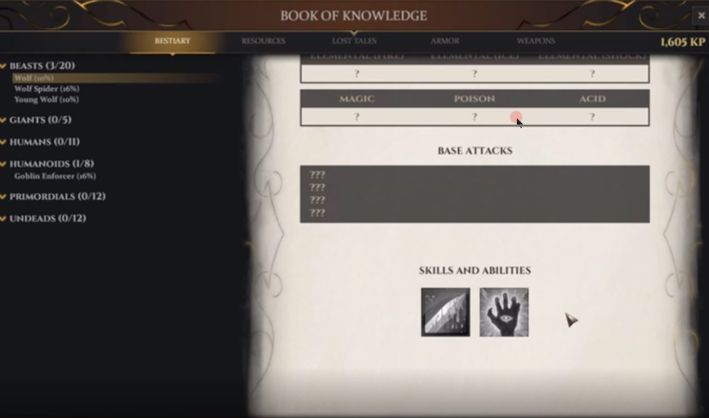
A similar system is also applied for the acquisition of resources and is used to encourage players to explore the world as much as possible. In fact, while a player can stay in one place, on one continent, doing so will limit progression. Unlike with regular MMOs where a player can stay in one place and grind their way through levels and unlock new skills as they go– even if it slows down over time – Fractured Online will stop providing players with new skills if they don’t discover new creatures. Players who enjoy seeing everything completed will need to visit every continent on every other planet. That said, it is worth it to revisit explored areas in order to acquire resources.
Exploring the game's worlds is going to take a lot of time. The continent we were shown during the preview was somewhere around 40 to 45 square kilometers and it would take players about five or six hours to walk all the way around. Walking is pretty much what players will be doing to get around, too, as there is no fast travel or teleport, except in between continents or worlds. The good news is that the only time players run into any kind of loading screen is when they change continents.
This means that there’s a lot to be done if you’re one of those players who wants to do everything. At launch, it will take months. That said, players do not have to spend months to be competitive. Those who want to participate in endgame content, particularly PvP can be competitive in just a few weeks, although they will be limited in some ways. The most specific limitation is “talent points”. This is another way for players to use knowledge points by changing them into talent points and using them in the talent tree. This does not give players more abilities, but rather fine-tunes the character and allows for more build types. In fact, after a certain point, players will exclusively unlock builds rather than increase character power or add to their abilities. It’s a good, but not required, thing to have when engaging in battle.
Even without talent points, player builds will be unique – provided they do explore and acquire abilities. The reason for this is that players can’t possibly use all the available talent or abilities on a character at any given time. Only a certain amount of slots are available on the hotbar for abilities. And...well...we all know how talent trees work. Decisions must be made.
Players can create up to three ability and talent presets. These are made by obtaining the desired abilities and talents and putting them together. To ‘save’ them, players need to go sit in front of a fire – typically in town - and “memorize” them. Players can do this often.
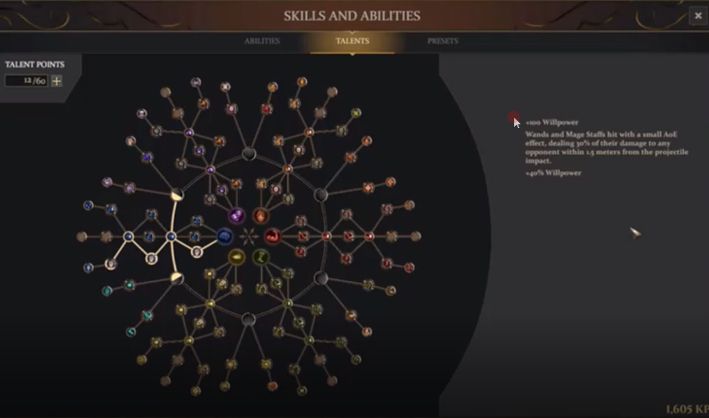
Speaking of towns, another of the pillars of the game is player-made cities. This is more than just throwing houses up and decorating some plots. Fractured Online’s city system is designed as a fairly complex city simulator. Each city has its own government, run by the players. It takes a group of 20 to claim a spot in the world by buying it with gold coins. A leader (or Governor) must be chosen, and much like a guild leader in other MMOs, they will be responsible for managing things, like creating positions below them for other members of the city. They, however, can not go it alone. A requirement to create a city is that two or three Vice Governors are required. Otherwise, the city can not be ranked up. These Vice Governors can do almost anything the Governor can do, and are there in case the Governor needs to be replaced.
As for managing the city itself, Governors (and those they elect to share the powers with) are responsible for deciding the layout. This means creating roads, public buildings, and even setting up farming areas – should they decide to do that in town. They will also need to handle taxation, not just of the city citizens, but also residents of the region and even visitors from other places. This is important, because the cost of running the city will increase as its rank is increased, and players will want to as city rank determines research points that can be put into a tech tree to unlock even more technologies, craftable and buildable items, and even bonuses. Maintenance costs are paid in a selection of resources every week. That’s vegetables, proteins, and cereals.
As mentioned, cities have a farming system – which is a lot like real-world farming. Players must build plots on fertile soil. Soil fertility is important in this game and players will be required to rotate out plots or even let them return to grass for a while in order to replenish minerals used up by previous crops. Players must also keep track of things like temperature and moisture.
Keep in mind, however, that ranking up a city does not allow its citizens to gain access to everything. Cities need to specialize and will only be able to produce certain resources for themselves. Luckily, that’s where other cities come in. Cities can work together to form a nation and share resources. Players can even try to control more than one city and use the productivity of one to pay for maintenance on another.
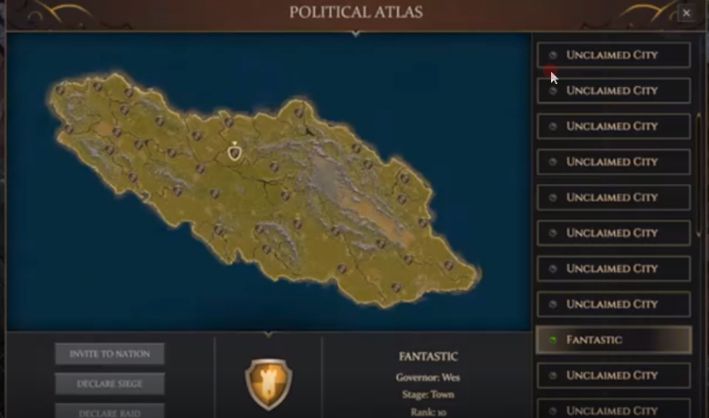
It’s also worth noting that banks and markets are local. This means that each city has its own. They’re not shared or accessible from remote locations as they are in other games.
If they’re not the sharing type – and are on the right worlds – players can simply try to conquer another city and take what’s theirs. There is a process, of course. Cities can not just attack each other without warning. In fact, they have to provide their intended victims three days to prepare to defend themselves and, if they’re smart, they’ll take that time to prepare as well. Defenders choose the time of the battle – which will last for up to an hour and consists of combat between up to 30 members on each side. Prior to the battle itself, both cities need to prepare. Defenders need to ensure they can protect themselves. Attackers must move into place, bringing their siege engines with them. They’ll also be building tents and putting up banners.
The banners are important because destroying them helps determine the victor. The defender loses if the attackers are able to tear down their wall and destroy their banner. The attacker loses if they fail to break down the wall within the hour or have all their banners destroyed.
For those wondering what Fractured Online’s combat is like, it was described as being “in-between Diablo and League of Legends”. It features the control of an ARPG, with players clicking to move and right-clicking to attack in a specific direction. Almost all of the abilities a player has are non-target AoE or directional. That even includes swords.
As mentioned above, the third pillar of Fractured Online’s game design is World vs World combat. We already noted that players can travel between worlds. In fact, this is the one time that teleportation of any kind is used in the game, and the only time players will see a loading screen. Players can build star gates in their cities to travel between planets. All three planets exist in the same universe, but traveling to them is expensive. And, as mentioned before, when players visit another world, they can not take the rules of their world with them. If you leave the PvP-centric demon world to visit the peaceful beastman world, you can’t pick a fight, but you can grab some nifty resources.
That said, there is another option. According to the game’s lore, the three different planets all used to be one. At some point in its history, it was split into what we have now. At the same time, other pieces of the world broke off and became asteroids. It is on these asteroids that a lot of World vs World combat will take place. In fact, they’re a very important feature in the game. At present, each is around one square kilometer in size and each has a specific theme – such as ice, or volcano. Each also contains a control point that can be claimed and then fortified by whoever manages to do so. Claiming and keeping a claim on an asteroid is beneficial as it provides perks, including relics that can provide bonuses to cities.
Anyone can participate in combat on asteroids – provided they’re there at the right times to do so. There are no penalties or jail time for engaging in combat in these areas. They are high risk, but the rewards are worth it. One huge reward is that they can provide players access to resources not available on their world without requiring a trip to one of the two other worlds. Of course, the developers expect that they will likely end up being controlled by big alliances – as is typical in PvP-centric games.
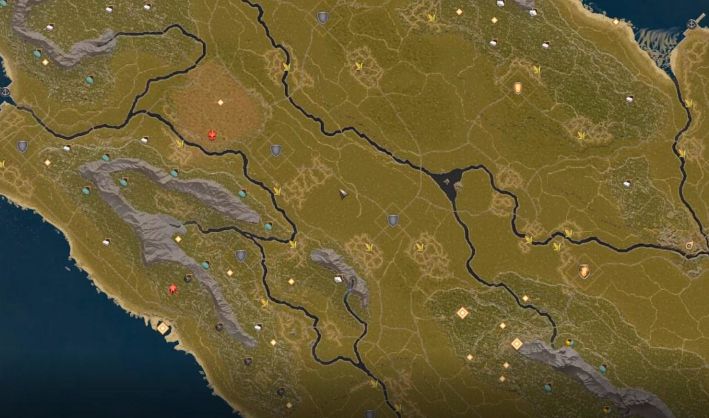
For those who don’t enjoy PvP, but would like to actually try an open-world sandbox MMO, there’s good news on that front as well. Normally, you’d just have to suck it up and deal with other players trying to kill you in a sandbox game. But, as we mentioned earlier, one of the three main planets in the game is a peaceful planet. That means no PvP. Of course, you have to take on the beastman race, but that’s probably not a bid deal to get some peace and quiet.
There’s still plenty to do as a PvE player as well. The game features points of interest, open-world dungeons (with underground dungeons planned for later), the ability to summon bosses and fight them, and more. Players will be required to work together in this world, not just on things like building cities, but also on summoning and taking down the bosses. The bosses can only be summoned after farming certain materials and taking them to the altar. Once that happens, everyone will be alerted to its presence. Other PvE combat includes fighting bandits and taking their stolen loot. World events are planned as well.
There is room for a PvE focus on the human world. The sheer size of the continents and steep punishment for player killing should make it unappealing to most players to engage in criminal activities like player killing. Players can likely avoid PvP altogether by simply avoiding main roads.
That said, if a member of the beastman race does get the urge to engage in a little PvP, they have options. They can travel to another world or an asteroid and get in on the action. Just remember that when traveling to other worlds, you don’t live there and must return to your own.
The above is just a sample of what the game has to offer. As was pointed out, there are plans to add a lot more to the game. Other features teased during the walkthrough included the addition of Alchemy and Herbalism to crafting and a temperature system with weather events.
Fractured Online is getting closer and closer to launch and lately has been hosting testing events for players to take part in. Those interested in finding out more should hop over to the game’s official site.
Related Articles
About the Author

QuintLyn is a long-time lover of all things video game related will happily talk about them to anyone that will listen. She began writing about games for various gaming sites a little over ten years ago and has taken on various roles in the games community.
More Stories by QuintLyn BowersRead Next
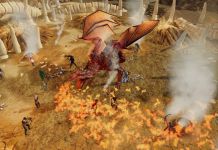
Feature
INTERVIEW: Reaper Games CEO Joseph Rubin Explains Why Legends Of Aria's Future Is Blockchain
Not everyone is excited about NFTs and blockchain being built into the MMORPG, but Rubin would like you to "keep an open mind" and see what the team has in store.
You May Enjoy
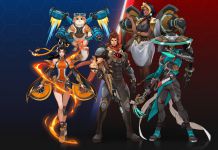
Years of turmoil and doubt have given way to a new beginning
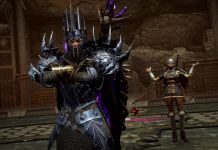
It looks like players in the Americas are getting a single server.

These heroes got some changes with the arrival of the new season.

Set your alarms and prepare your wallets.
Discussion (1)